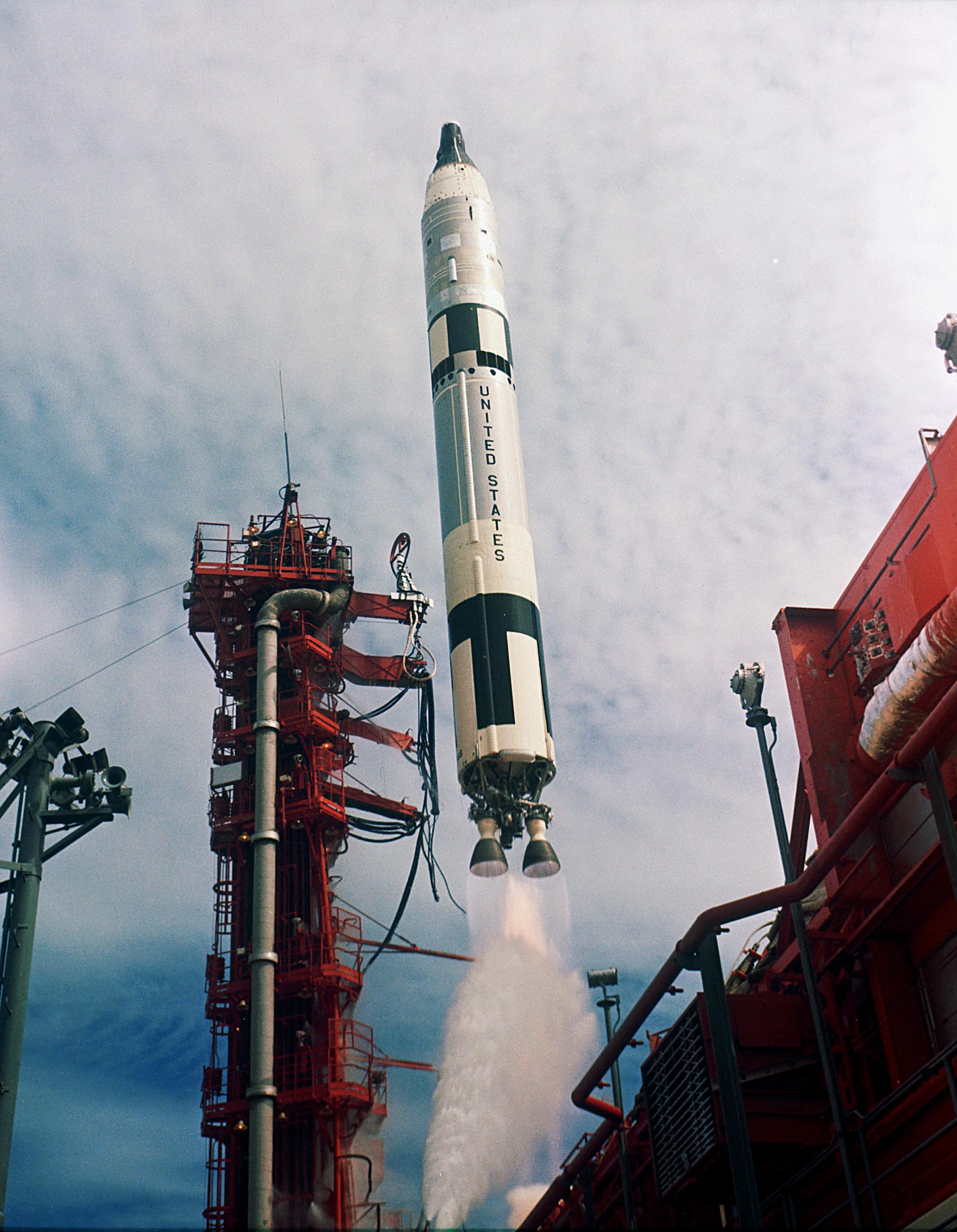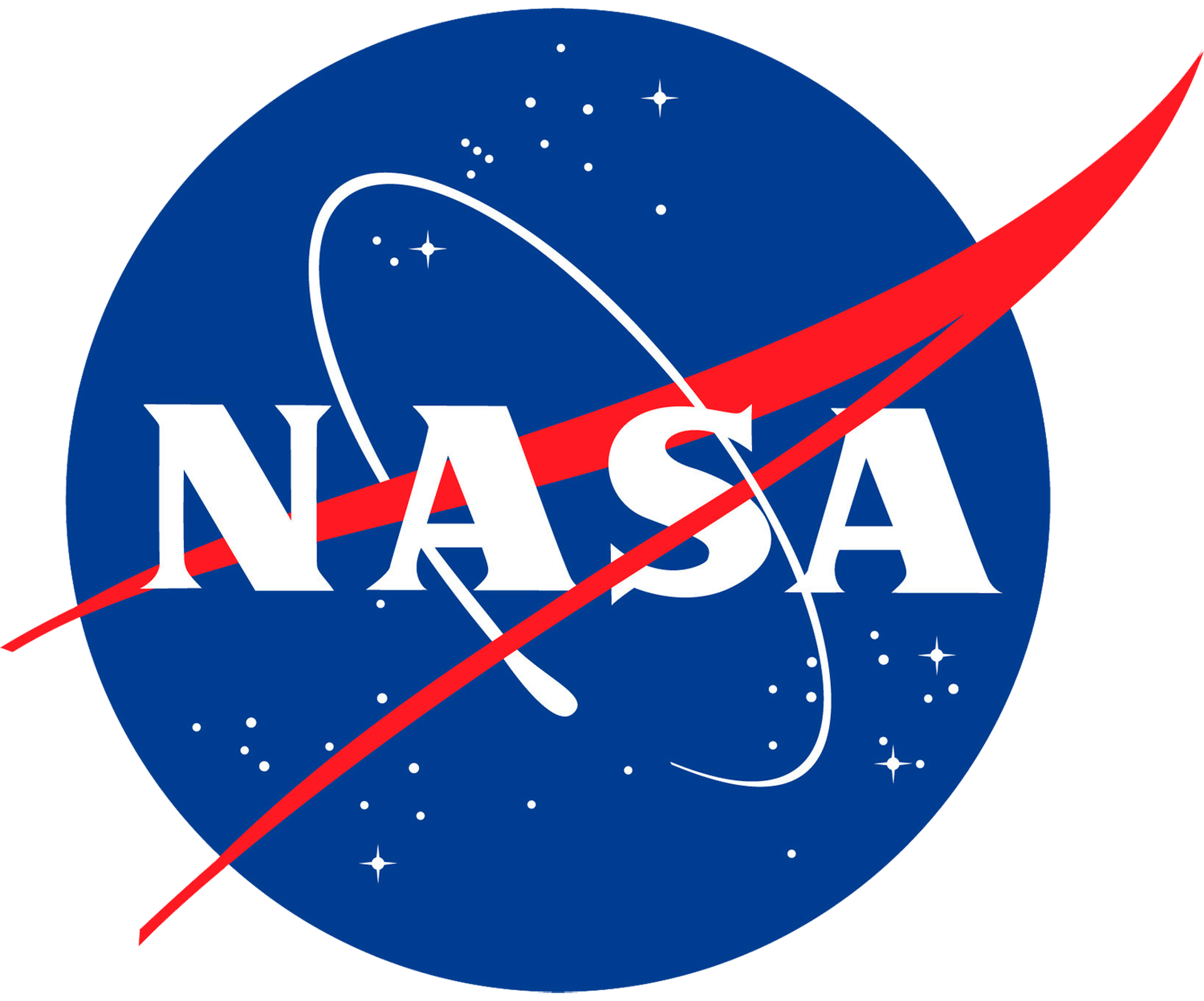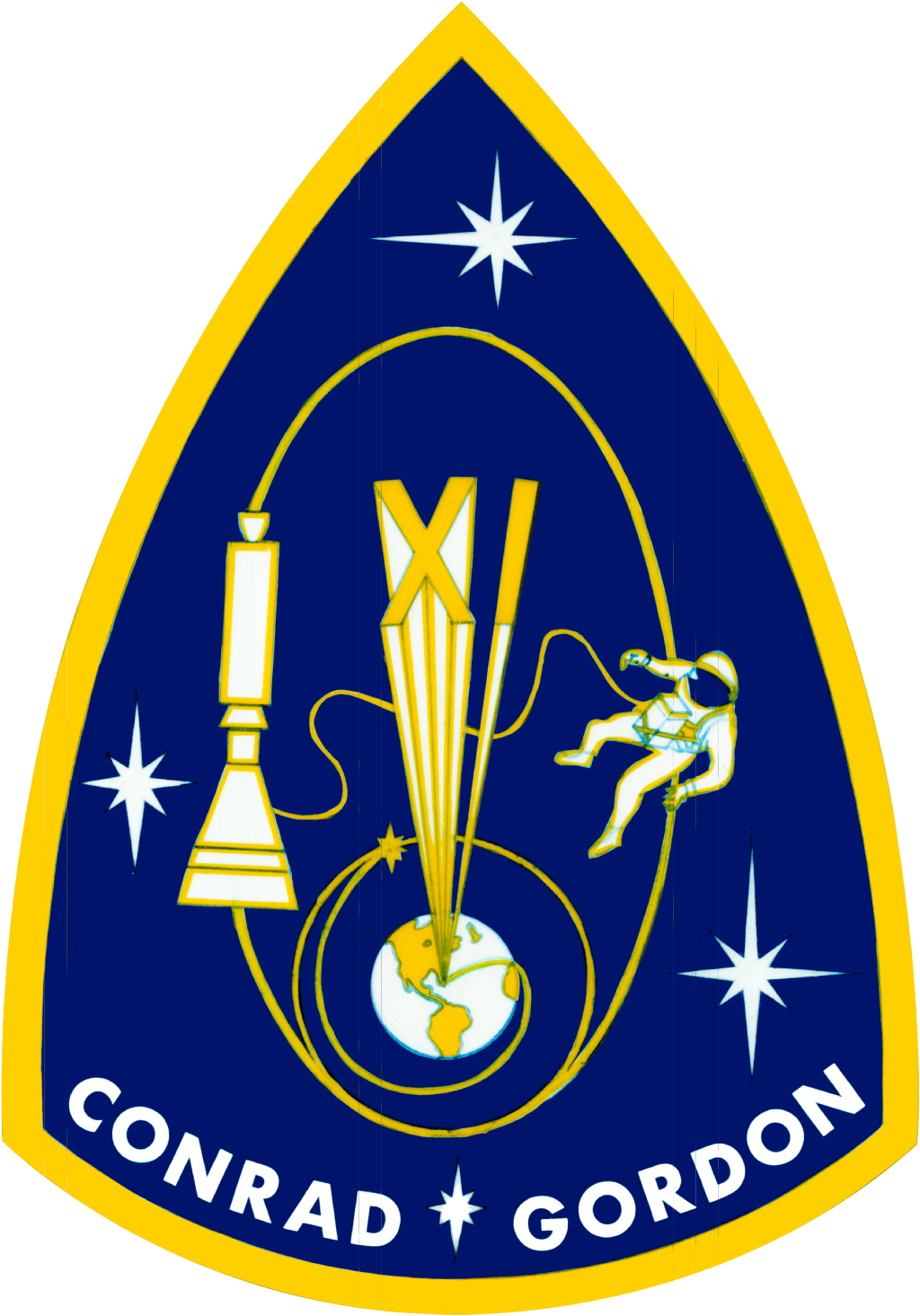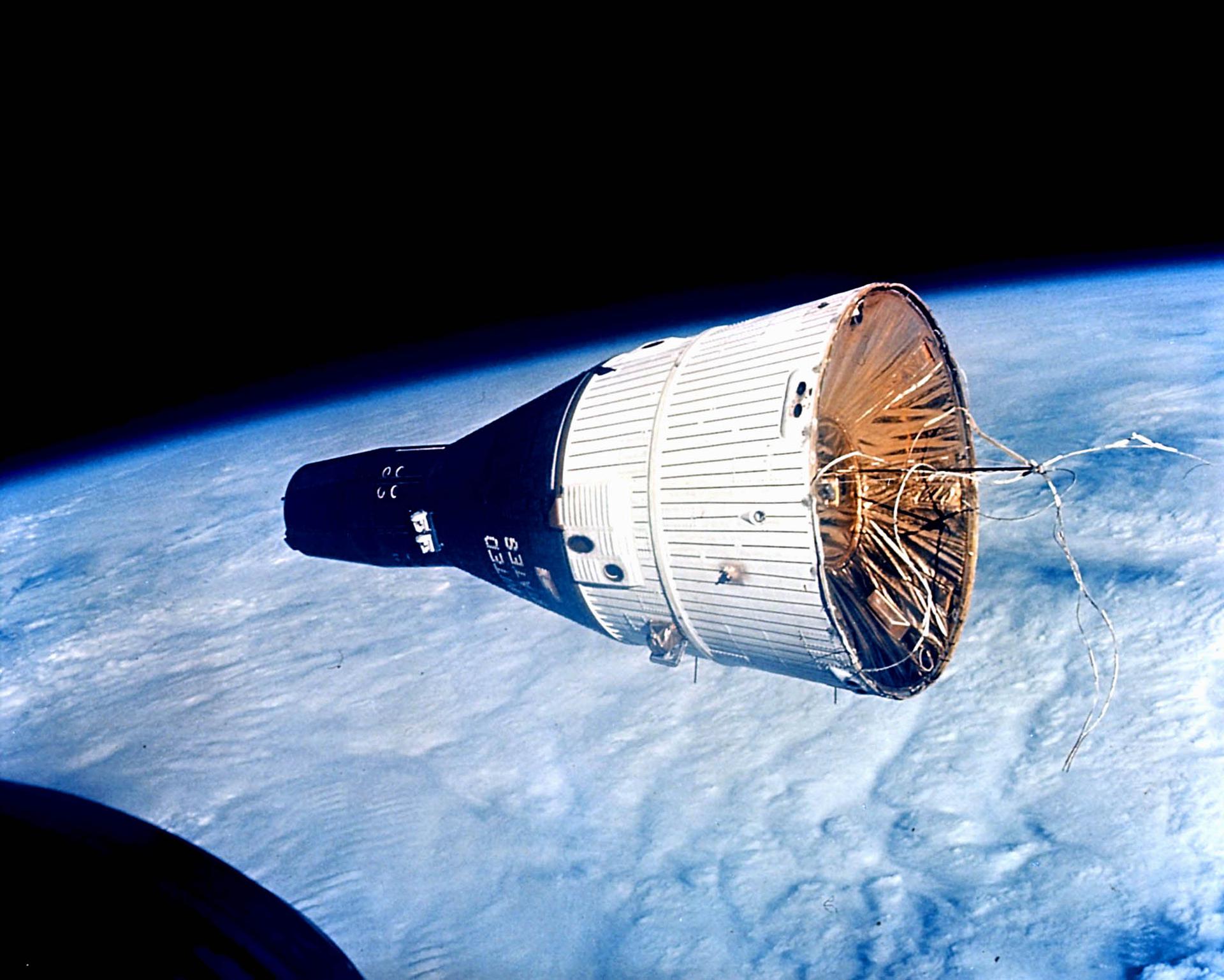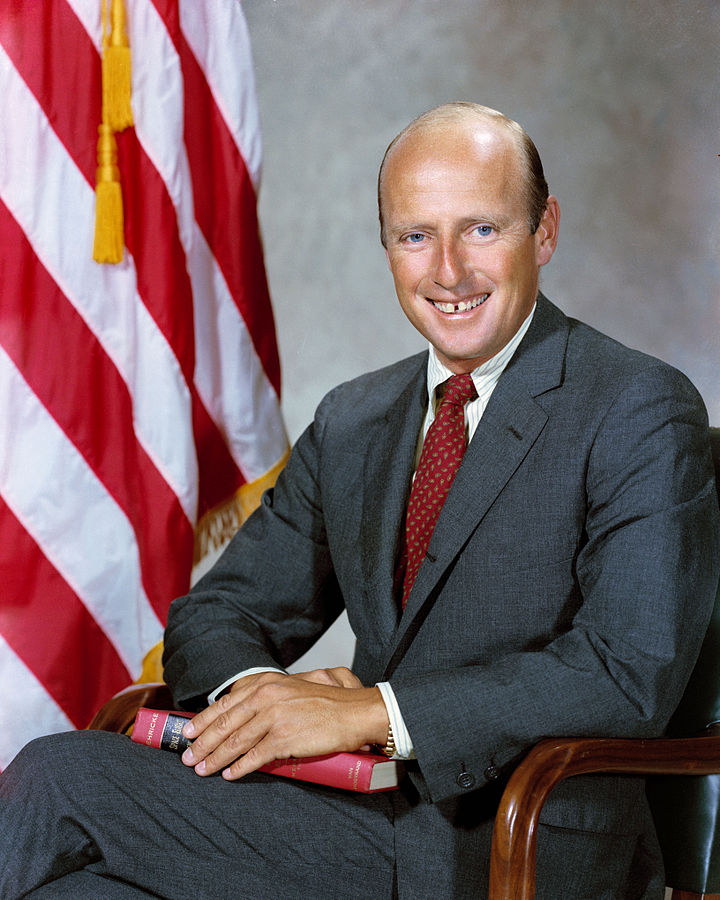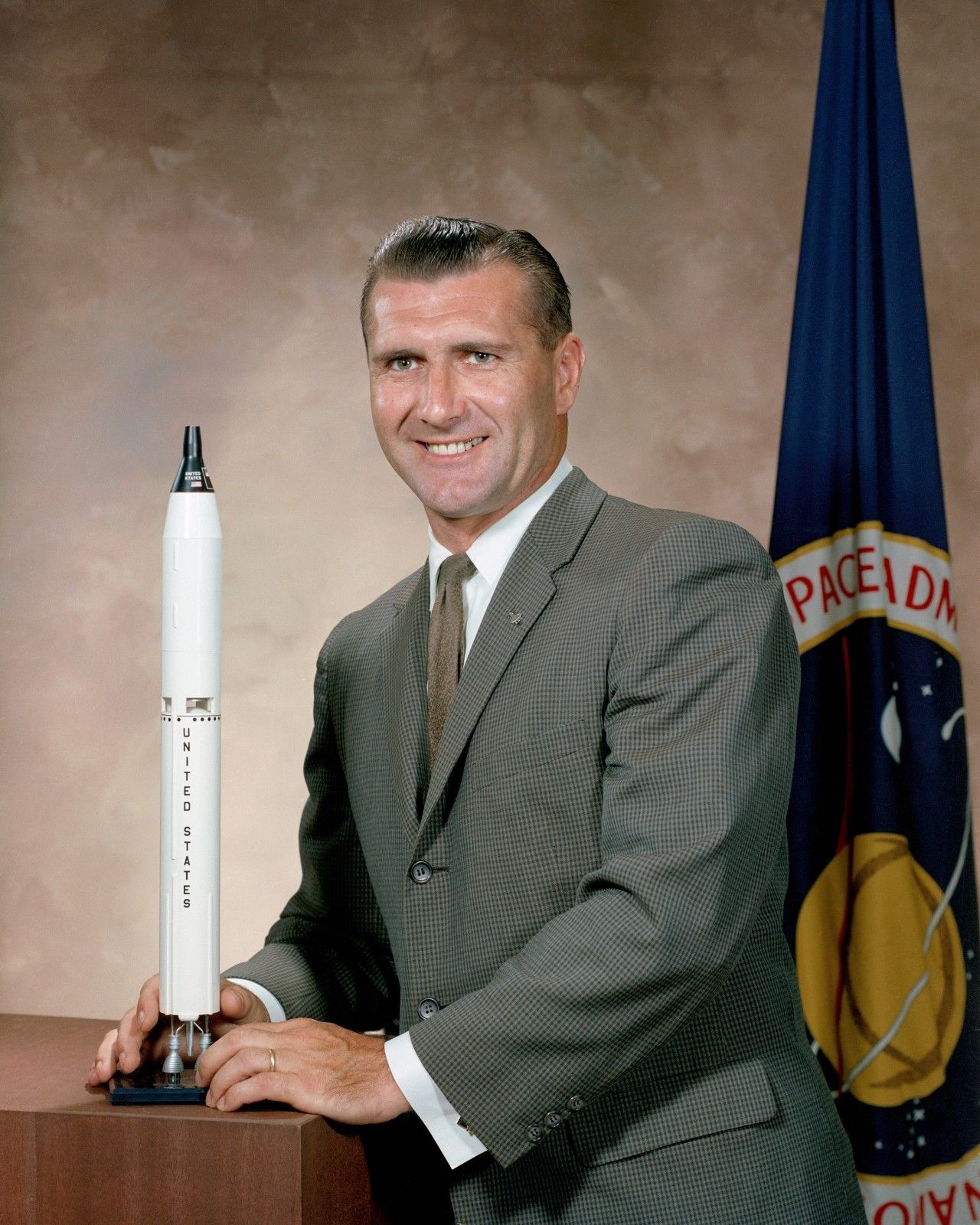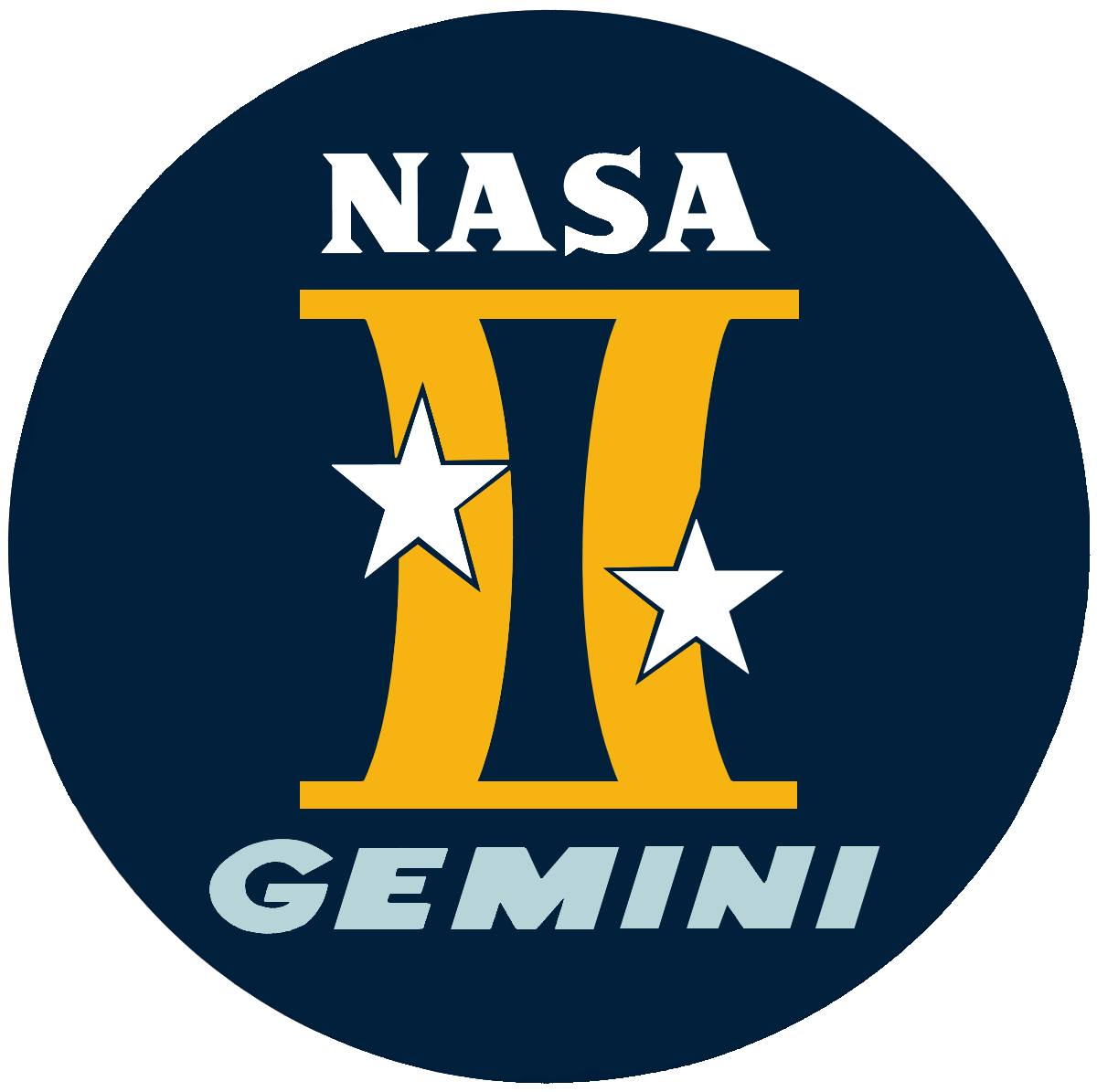Titan II GLV | Gemini XI
Launch Complex 19
Cape Canaveral SFS, FL, USA
T?
--
Days
:
--
Hours
:
--
Mins
:
--
Secs
Date Loading...
National Aeronautics and Space Administration
The National Aeronautics and Space Administration is an independent agency of the executive branch of the United States federal government responsible for the civilian space program, as well as aeronautics and aerospace research. NASA have many launch facilities but most are inactive. The most commonly used pad will be LC-39B at Kennedy Space Center in Florida.
Gemini XI (Gemini 11)
Gemini 11 was the ninth crewed mission of the NASA's Project Gemini. It was commanded by Command Pilot Charles "Pete" Conrad, Jr. and Pulot Richard F. Gordon, Jr. The crew performed a direct-ascent rendezvous with the Agena Target Vehicle on the first orbit and used the Agena rocket engine to put the combined craft in a higher orbit. Astronauts also performed two EVAs and conducted various scientific experiments. The mission started on September 12, 1966, 14:42:26 UTC and, having performed the first totally automatic, computer-controlled reentry, it ended on September 15, 1966, 13:59:35 UTC.
Gemini SC11
Serial 11
Launch Crew Count 2
Status Single Use
Landing Time 1966-09-15T13:59:00+0000
Crew
Pete Conrad
Command Pilot
Nationality American
Date Of Birth 1930-06-02
Deceased 1999-06-08
Status Deceased
Type Government
Richard F. Gordon Jr.
Pilot
Nationality American
Date Of Birth 1929-10-05
Deceased 2017-11-06
Status Deceased
Type Government
Titan II GLV
Height 33.20 Meters
Max Stages 2
Mass To GTO 0 kg
Liftoff Thrust 1913 kN
Diameter 3.05 Meters
Mass To LEO 3850 kg
Liftoff Mass 154 Tonnes
Launch Success 12
Consecutive Success 12
Maiden Flight 1964-04-08
Launch Failures 0
Programs
Gemini
Project Gemini was NASA's second human spaceflight program. Conducted between projects Mercury and Apollo, Gemini started in 1961 and concluded in 1966.
